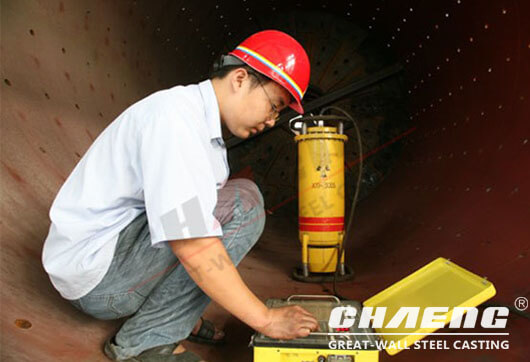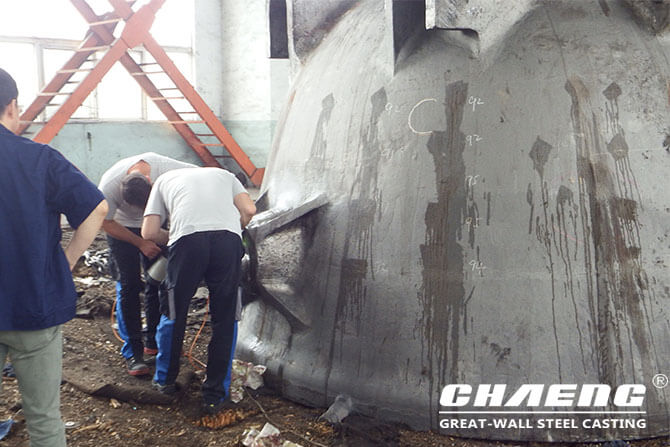The difference between level-3 and level-2 flaw detection of steel castings
21 Nov 2019 UTC+8Views:
It is well known that the steel castings need to be tested for flaw detection during the finishing and machining stages, and the internal defects of the steel castings, such as cracks and shrinkage cavities, can be further detected through the inspection. According to the way of flaw detection, the flaw detection methods can be divided into: ultrasonic flaw detection, magnetic particle inspection, dye penetrant inspection, and radiographic inspection. There are three main types for steel casting manufacturers: ultrasonic inspection, magnetic particle testing and dye penetrant inspection.
According to the level of flaw detection, it is divided into level-1, level-2 and level-3 flaw detection standards. Generally, general steel casting manufacturers can reach the three-level flaw detection, and some can reach the second-level flaw detection. Nowadays, for large steel castings, especially for large-scale steel castings with complex structures and harsh environments, the required parts of the steel castings are required to reach the level two inspection level, such as: slag pot trunnion, inner side of rolling mill housing, etc. So what is the difference between the level-2 flaw detection and the level-3 flaw detection? What are the advantages of level-2 testing?

"The biggest difference between the level-2 flaw detection and the level-3 flaw detection is the inspection standard for the internal defects of the steel castings. The level-2 flaw detection is more strict than the level-3 inspection, requiring fewer defects and smaller defects. " Mr. Wang, the production minister of CHAENG pointed out.
Of course, relatively speaking, the second-level flaw detection standard is relatively high. To reach the level-2 flaw detection for the whole steel casting part is difficult, and the cost is extremely high for the purchaser. Therefore, in general, the key parts of the large-scale steel casting must meet the requirements of Level-2 flaw detection. CHAENG has been able to meet the customer's level-2 flaw detection requirements in the flaw detection process, which can ensure the internal quality of the steel castings. At the same time, CHAENG uses techniques such as grinding, shot blasting and painting, to reach high finish standard, so that both internal and external quality of the steel castings can be guaranteed.






